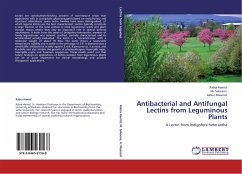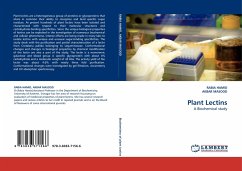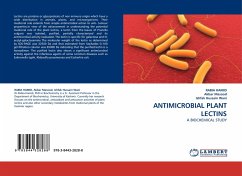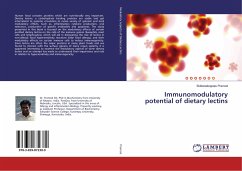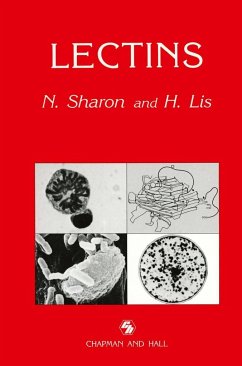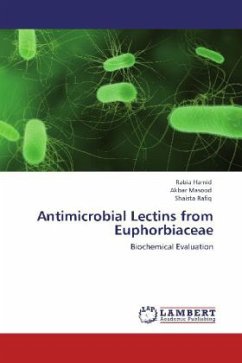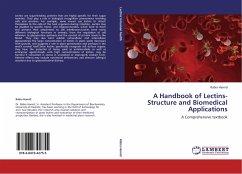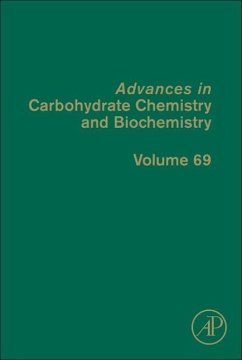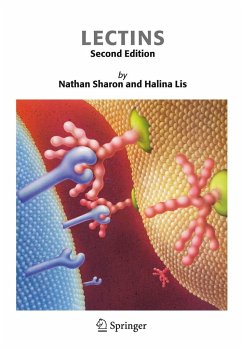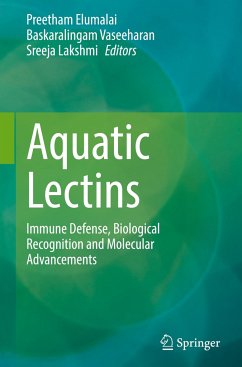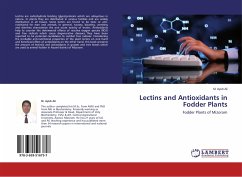
Lectins and Antioxidants in Fodder Plants
Fodder Plants of Mizoram
Versandkostenfrei!
Versandfertig in 6-10 Tagen
24,99 €
inkl. MwSt.

PAYBACK Punkte
12 °P sammeln!
Lectins are carbohydrate binding (glyco)proteins which are ubiquitous in nature. In plants they are distributed in various families and are widely distribution in all tissues. Some lectins are found to be toxic or anti-nutritional for man and animals. In general, nausea, bloating, vomiting and diarrhea characterize the oral acute toxicity of lectins. Antioxidants help to counter the detrimental effects of reactive oxygen species (ROS) and free radicals which cause degenerative diseases. They have been reported to be potential candidates to combat free radicals. Considering the probable anti-nu...
Lectins are carbohydrate binding (glyco)proteins which are ubiquitous in nature. In plants they are distributed in various families and are widely distribution in all tissues. Some lectins are found to be toxic or anti-nutritional for man and animals. In general, nausea, bloating, vomiting and diarrhea characterize the oral acute toxicity of lectins. Antioxidants help to counter the detrimental effects of reactive oxygen species (ROS) and free radicals which cause degenerative diseases. They have been reported to be potential candidates to combat free radicals. Considering the probable anti-nutritional properties of the plant lectins on one hand and beneficial effect of antioxidants on the other hand, this book presents the amount of lectin(s) and antioxidants in grasses and tree leaves which are used as animal fodder in Aizawl district of Mizoram.



